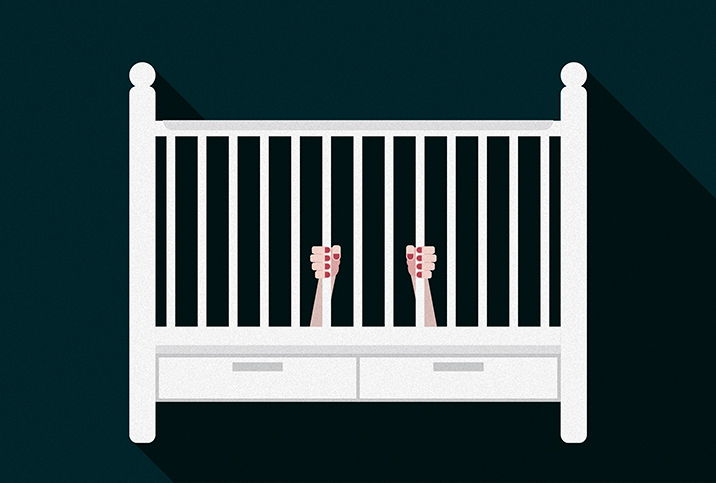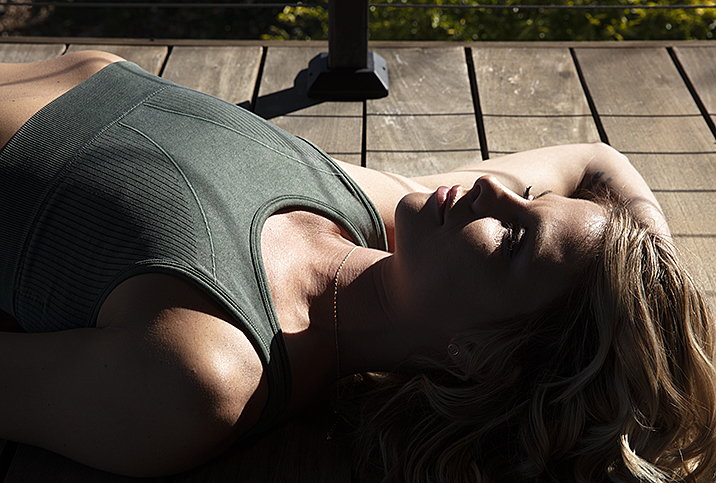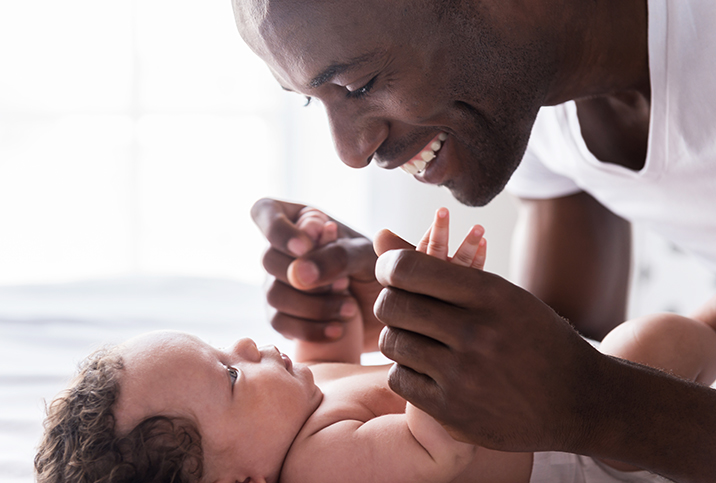How to Support a Loved One With Postpartum Depression

Many new moms experience postpartum "baby blues," which can include frequent mood swings, crying, anxiety and depression. This issue typically occurs within the first few days after giving birth and can last for a couple of weeks.
For some women, symptoms persist longer and are more severe, which is categorized as postpartum depression (PPD). However, difficulties identifying the signs and the stigma associated with the condition contribute to many women suffering in silence.
"For loved ones, being able to recognize postpartum depression is really helpful, as many women suffering from postpartum depression will not always recognize that they are struggling with their mental health and will instead blame themselves or assume that they are bad mothers," said Jenn Cooper, D.Coun.Psy., C.Psychol., a psychologist in Paisley, Scotland.
When postpartum depression occurs
Misconceptions about when postpartum depression occurs can also hinder the identification of the condition.
"It's important to understand that postpartum depression affects women anywhere in the first year following childbirth rather than just in the first six weeks, which is what seems most associated with it," Cooper said.
Although PPD can affect any mom, certain circumstances make it more likely.
"Things such as birth trauma, feeding issues, sleep problems, a poorly baby and lack of support are all risk factors for postpartum depression," Cooper explained.
In such cases, prioritizing self-care during and after childbirth is particularly important. Contrary to popular belief, postpartum depression rarely resolves itself naturally.
"With postpartum depression, sometimes time alone does not heal," said Serena Rosa, D.N.P., an obstetric and gynecology nurse practitioner and certified lactation counselor in private practice in Boston.
Sometimes the postpartum parents may need talk therapy, movement therapy, trauma release exercises, medical therapy, community support or other forms of help, Rosa said.
What postpartum depression looks like
Women can experience a variety of PPD symptoms, but it's important for loved ones to look out for the most common ones.
"Signs such as mom struggling to bond with baby, including avoiding taking on responsibilities with baby, or mum being overly preoccupied with baby [and] not letting anyone else help, or struggling with basic self-care for herself are some key signs," Cooper said. "Additionally, mum becoming irritable, withdrawn or unusually lethargic or tired, out of the norm of having a newborn, are signals that mum might not be OK."
Other symptoms are less obvious, making the condition harder to recognize.
"There may be much of the mother's experience that you are not aware of, particularly the thoughts she might be having," Cooper explained. "A mother with postpartum depression will experience pervasive negative thoughts about herself, her baby and her life. Some of this she might express, whilst she may not voice it at all."
Despite its name, postpartum depression doesn't necessarily mean a mother is experiencing a low mood.
"Sometimes it's not just being sad that is a sign of postpartum depression," explained Sarah Yamaguchi, M.D., a board-certified gynecologist at DTLA Gynecology in Los Angeles. "Other symptoms can be anxiety, anger, insomnia or other mood disturbances."
How loved ones can help
Demonstrating an understanding of postpartum depression is essential for a new mother's partner, close family members and friends.
"The first step is just to acknowledge that it exists and that no one is to blame for it and that like any medical condition, it needs to be treated," Yamaguchi said.
Loved ones can provide support in many ways, and the basics shouldn't be overlooked.
"Help with the practical things—help with baby, feeding, nappies, etcetera," Cooper advised. "Help mom to get rest when she can—can you hold baby while she naps or take over some of the night feeds?"
It's also important to ensure that the mom doesn't neglect her own self-care.
"Encourage her to jump in the shower, make her some meals," Cooper said. "Pick up the slack. Mom may feel the pressure to 'do it all,' but picking up some more household chores will take the pressure off of her."
Be mindful about overwhelming the mom when offering help.
"Don't ask her what she needs; give her specific options to choose from," Rosa said. "The reason why this is so powerful is because sometimes it can be hard to know what you need when someone else is asking."
Aside from helping with daily tasks, providing emotional support is imperative.
"Help with talking about it. Ask mom how she is doing and give her space and permission to be finding things hard," Cooper said. "If you are struggling to start this conversation, recruit a sister, friend or mom to help."
When providing support, it's important to avoid being overbearing. It's normal for a loved one to feel the urge to "fix" or solve a postpartum depressive episode, but the best thing support people can do is hold space for this transformation, Rosa said.
Medical support is also essential.
"It's important to encourage their loved one to contact a health professional for treatment," Yamaguchi advised. "Both talk therapy and medications can help treat postpartum depression."
Taking care of yourself
When helping a loved one with postpartum depression, it can be easy to overlook your own needs.
"It is so important that you also look after your own well-being," Cooper said. "This is especially hard for those who are supporting someone with something like postpartum depression because mom is the priority—quite rightly—but remember that you matter, too. Seek your own support, prioritize some self-care when you can."




















